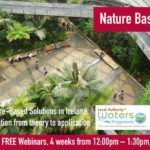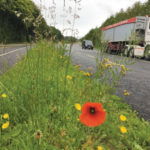Using nature-based solutions in our communities is a potential win…
Nature-based solutions: from theory to application – watch Engineers Ireland webinars
This Engineers Ireland Nature-based Solutions webinar series is structured on a universal design and delivery process. It will walk through the process and provide a guide on how to identify and respond to conditions as a project typically proceeds, identifying those stakeholders and project disciplines that should be involved at each stage.
Our society continues to adapt to innovations in technology, long-established patterns disrupted by climate change, and our desire to make healthier lifestyle choices, amongst other factors. Our infrastructure, at all scales, needs to evolve to take advantage of these changes, and the broad range of built environment stakeholders all have a vital role to play in shaping these new landscapes and driving this transition.
Why employ nature-based solutions?
- Improves climatic resilience in the face of increased risk of flooding and extreme temperature
- Increases biodiversity
- Creates more sustainable and climate-adaptive urban neighbourhoods through the allocation of space to natural landscaping
These techniques, working with the prevailing geography, can minimise environmental impact, and sensitively applied will strengthen the best qualities of a locality, enhancing amenity and popularity.
Series Objectives
The series will draw different interests over the four sessions, with some participants present for all four. However, there is a shifting emphasis in terms of skill, discipline and relationships as a typical project progresses through the design stages.
After the series, the participants should have gained:
- An understanding of the value and benefits of Nature Based Urban Infrastructure Design & Delivery
- An overview of how to appraise site conditions to determine options and concepts
- Insight into key considerations when developing a concept which is then used for consent and statutory assessment purposes
- An appreciation of the prevailing Statutory processes and design stages in terms of design detail, content and documentation
- Insight into examples of employing these techniques into the design of engineering projects
- Logging and documenting the process for ongoing operation, management, and knowledge sharing
- Networking and forging supply chain relationships







